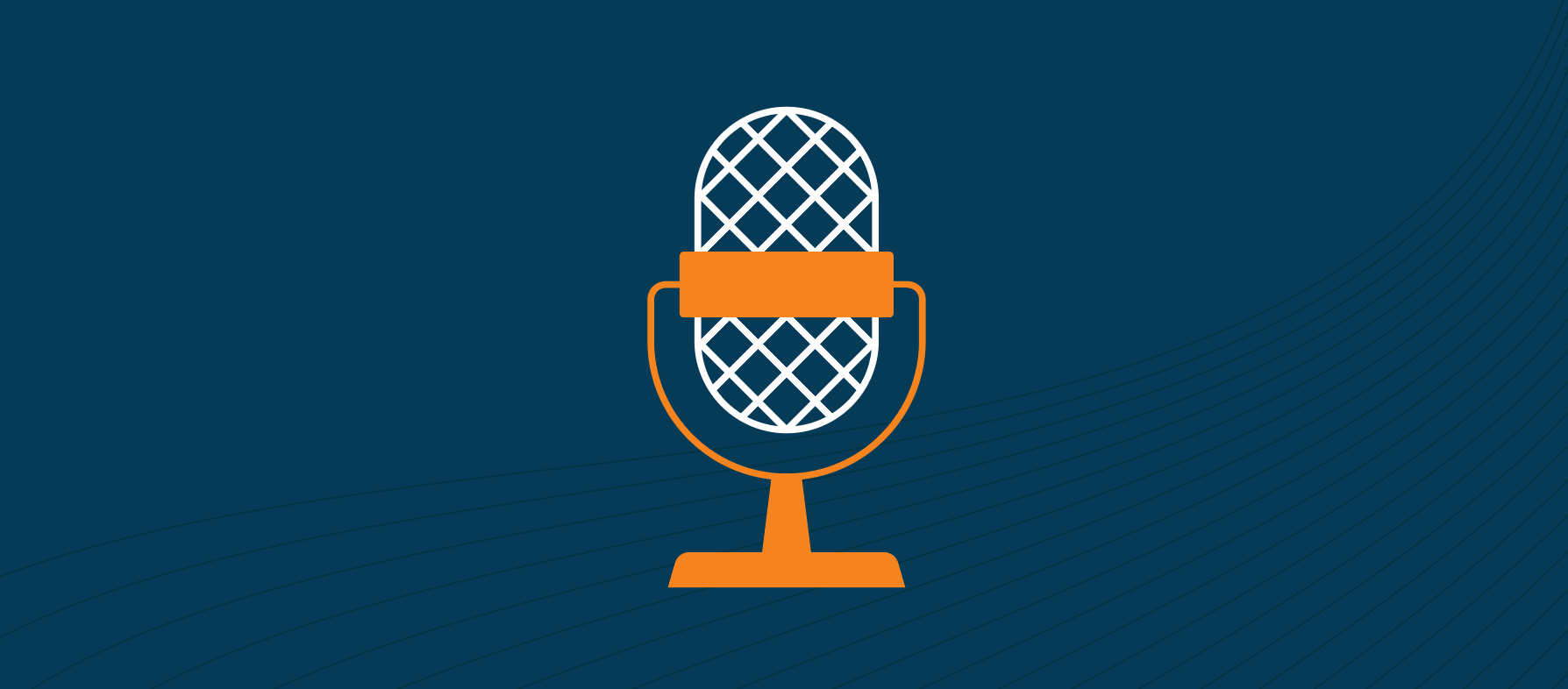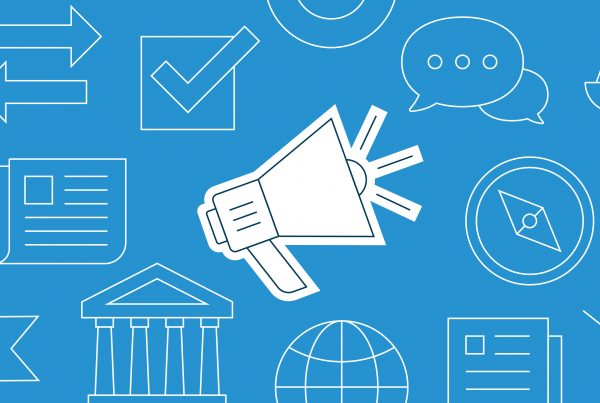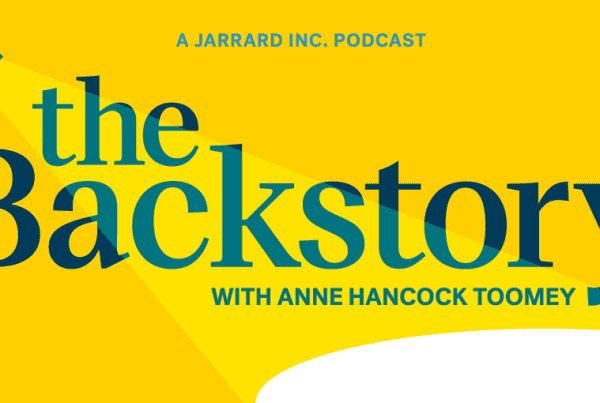This week, we continue our Nashville Healthcare Sessions podcast series with another conversation about the role of retail in healthcare, this one with Kroger Health’s Chief Medical Officer, Dr. Marc Watkins.
Dr. Watkins was on stage at Sessions with Dr. Kevin Ban of Walgreens. Seeing the leaders of two major retail healthcare organizations sitting side by side discussing the future of their sector was emblematic of the collaborative spirit present throughout the conference. Two competitors in firm agreement that there is plenty of work – and opportunity – for everyone.
In this conversation Watkins talks about food as medicine, continuing to reshape the conversation about health to better include conversations about prevention, and his approach to leadership and team building.
Key points:
- You can’t out-train a bad diet. Health isn’t just medicine, it must include healthy eating and lifestyle choices. This isn’t news to anyone, but Kroger Health has put that idea at the center of its brand and messaging and operations when it comes to positioning the organization in the constellation of retail health providers.
- Improving health requires a coalition of the willing. The only way we’ll help people live healthier lives and reduce today’s unsustainable healthcare spending is by having everyone – everyone! – at the table. This includes payers, regulators, lawmakers and providers of all types.
- Changing our approach to healthcare means reframing the discussion. Money spent on healthcare is money not spent somewhere else. According to Watkins, “Businesses can’t flourish if you’re just worried about taking care of your healthcare costs. Communities can’t flourish.”
- Leadership requires authenticity. Watkins himself works to be accessible, transparent and receptive. At the organizational level, this translates into frequent listening sessions to hear from employees (associates) and learn what’s important to them.
Read the Transcript
[00:00:00] David Shifrin: Dr. Marc Watkins thanks for taking the time. You literally just walked off stage.
[00:00:04] Marc Watkins: thanks for having me. Thank you.
[00:00:06] David Shifrin: So a couple of things, and, I’ll send folks to the recap for the panel, so you don’t have to repeat everything that you just spoke about on stage at Nashville Health Care Council sessions, but a panel about the role of retail in the future of health care.
And one of the things that really struck me during the panel and then as we were just talking a moment ago, walking back here to record, was what you were talking about in terms of driving behavior change. Right? And so your focus at Kroger is very much around food as medicine. And you just made the point to me that you can’t outwork a bad diet.
So, we’ve got this tension between trying to drive food as medicine, trying to think about the person as a holistic being who has all these different components, and yet at the same time, we as individual people still have to make choices.
So as you go about your work to improve health outcomes, to drive food as medicine, how are you thinking about helping people really make those individual choices? To make better choices towards better health.
[00:01:01] Marc Watkins: Yeah, thank you. And again, thank you for having me. I think for us at Kroger, food is, and food as medicine is a dedicated, educated and personalized approach to eating and enjoying food to help folks live healthier lives and to prevent illness before it starts really.
So, uh, What I said, just in passing that you can’t out-train a bad diet No train. Yeah. Yeah. And we, and you just can’t work out enough to. Offset the effects of really having a poor diet. Athletes know it, folks that are working hard at their craft and at the top of their game in athletics know how important nutrition is.
Every discipline in healthcare talks about how important things like lifestyle changes around diet and exercise are however, when folks are faced with making decisions about which foods are healthy for me? It becomes very challenging. It’s hard. And so at Kroger, we want to replace the hard button with the easy button, helping them make healthy choices.
Whether it’s using things like our food nutrition scoring app called OptUp to help them understand which is healthy for them. They can personalize this to make sure that the foods that they’re getting and they’re putting in their basket makes sense for them and their family. That’s really the first step.
The second step I think here is working with not only the payers, but regulators, legislators to understand that we have to put emphasis on prevention and food is one of the ways that we can do it by addressing things like nutrition insecurity, right? So folks are nutritionally insecure, meaning I’m getting the foods I need, but The right amount of nutrition is lacking and do we improve that?
And then finally uh, we recently Through collaboration worked very closely to launch our medically tailored meals program so that if you are dealing with disease, a disease state has set in, how can we make it easy for you to get the right nutrition by sending you ready to eat, easy to prepare meals that you can prepare.
And then, with your physician, with your healthcare provider, with your clinician, look at it in terms of the total nutrient content. to make sure you’re getting the right things to eat on a daily basis.
[00:03:11] David Shifrin: Taking your approach, Kroger’s approach, and integrating it. I mean, it’s, It’s a new model or maybe it’s a revision of an old historical agricultural model of food, but today it’s, it’s sort of a new model. And as you think about your role within The health care system, as well as the health of America, how do you think about talking to other stakeholders?
You mentioned just now, policy makers and payers and other types of providers. What do those conversations look like? How do you create that collaborative environment of each group, each stakeholder has an area and an expertise, and here’s how we integrate that holistically to make sure that we’re driving a pursuit of health and not just episodic care.
[00:03:55] Marc Watkins: Absolutely. And if you just some of the comments earlier on the panel suggests that we’re on an unattainable sort of health care expenditure being either $4.1 or $4.7 trillion, no matter how you add that up, it’s a huge number. And we are really committed to helping people live healthier lives. We also want to change the way health care is delivered in this country.
We know that we can’t do it alone. We’re going to need partners. We’re going to need a coalition of the willing to be able to help us Along that journey to ensure that we’re able to course correct that number and let me put it into maybe just a different thought. those amounts of dollars being spent create… it’s a… monies have to be spent somewhere, right?
If they’re going to be spent on healthcare, where are we going to spend the money on other things, right?
And think about from the employer’s lens, the vast majority of payment dollars in this country either come from the U. S. government or from employers. The notion of folks actually paying for healthcare themselves is a small percentage of healthcare.
The vast majority are employers. Think about wage deflation the investment in employees and investment in your associates. Business can’t flourish if you’re just worried about taking care of your healthcare costs. Communities can’t flourish. So for us at Kroger, we really believe that healthy communities are a real business strategy. We want them to be engaged. We want them to be vibrant, healthy communities are good for business.
And then finally, getting folks together is the key. I mentioned you can’t do this alone. We believe the next iteration of health care is gonna be more collaborative. It won’t be siloed. It would be more interdisciplinary. It won’t be volume based. It will be value based. And we’re on that journey together with health systems, payers and others that share that mission of helping people live healthier lives.
[00:05:49] David Shifrin: Yeah, I loved what you all talked about on stage where if you being the broad retail sector in in healthcare can take some of the burden off of the acute setting, the quote unquote traditional hospital setting. And put each group in a position to do what it does best. And I think what you’re talking about as well with pharmacy and food really is striking because it’s the convenience as a consumer for us to get everything that we need in that one physical space. So I guess when you, today you’re literally on stage with your peers and competitors.
So how do you all, when you sit down and talk about these things as a group, how do you game plan your role as leaders working as businesses, you said there has to be a business case for all of this, but working as different competing businesses in the real retail sector. But also knowing that you’re all part of this big picture and clearly working together.
[00:06:39] Marc Watkins: When we look at health and our commitments around health, it’s the right thing to do. If you just, we open by painting the picture of how many people are sick when you have, four and 10 people with one chronic disease, six out of 10 have more than two.
We’re really a sick nation.
And it puts us at a disadvantage economically. It puts us a disadvantage. When you think about the impact of having almost upwards of a third to sometimes even higher number of adolescents and young people being disqualified from ever enlisting or joining the armed forces.
That puts us at a potential security risk for the country. We’ve been staffing the world’s most fantastic voluntary fighting force. And, this is a national security issue. I can go on for days talking about the impact that it has for our communities, but think about it at a personal level.
If there’s an opportunity to intersect and change course or course correct around disease states, and we can do it around something that we heard not only from our mothers, but from our grandmothers. Parents, our grandmothers told us that you are what you eat, right? And we’ve heard that, And so, really making the healthy choice, the easy choice, it’s fun it’s exciting. It is a a great opportunity for us. But let me just be clear, as we get down through the business model, creating enough of a, the food is medicine as a defined benefit with the payers, understanding that.
There is enough evidence out there that is significant enough that a diet that is healthy, balanced can actually course correct with a disease and disease state only makes sense. So we’re committed with a coalition of the willing to have conversations about how do we make this really worthwhile in the future.
And then also we believe this is a win. And it’s not a… Zero sum game. It’s not that someone has to lose for us to win or for us to lose for someone else to win. I think everyone can benefit from the understanding that that America right now it is sick. And then how do we help them live healthier lives in the future?
And we believe that the food is medicine campaign that we’re on is one of the ways that we can do it.
[00:08:59] David Shifrin: Dr. Watkins one just quick lightning round kind of question that is for you personally. Our audience consists of healthcare executives, healthcare leaders who are thinking about how to communicate, how to activate their teams and empower their teams.
And so I’m curious just briefly to hear about how you, as you go to work every day and have this team at a massive national organization, how do you go in and empower people and lead them and inspire them towards the shared mission that you all have?
[00:09:25] Marc Watkins: First, it’s being your true authentic self.
If we’re talking about, any of this from a leadership standpoint being as transparent. And accessible as you, you can be. I had a famous surgeon tell me one time, it’s not so much what you know, doc it’s going to be how accessible are you to, not only your patients, but the staff, the nursing staff, administration, the community. It’s your accessibility.
And so leaders need to be their true authentic self, but also be accessible. And then also be receptive to things like criticism or critique, right? Understanding that helps you grow. So feedback is a gift. So we talk openly about all of this and to take on the challenges that are meaningful.
One of the things that we do all the time at Kroger is our listening sessions. We engage our associates. So we call our employees associates to respect and understand. What is important to them and then react in a meaningful way, right? Understanding that you need to listen. More than you talk and listen again more than you talk and then in that your ability to listen is to understand not to respond.
I think we can all benefit from that. And so I’m motivated that I support on the Kroger health side a little bit more than 24,000 associates around the country and in our our corporate side, more than 550,000. And I’m just honored to be part of that and we’ll continue to listen.
[00:10:58] David Shifrin: Dr. Marc Watkins, it’s a pleasure. Thanks so much for your time.
[00:11:00] Marc Watkins: you for having me.
Looking for more? Listen below or subscribe to High Stakes on Spotify
Subscribe to Jarrard Insights & News
"*" indicates required fields




